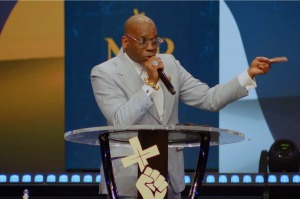What Should Be the Christian Perspective on Capitalism?

Capitalism is often used as a curse word in contemporary political discourse. For others, it is used as a description of ultimate, unadulterated good. The term, coined by opponents of a free market, has so many definitions that it's sometimes hard to figure out exactly what those who use the term mean by it. For some who dislike free market economics, capitalism is responsible for everything that is wrong with the world. For some who prefer a free market, capitalism is the sum of all the world's goodness.
In reality, of course, the answer is somewhere in the middle. However, it is often hard to get people on either side to listen to legitimate critiques of capitalism and responses to those critiques. A recent volume published by the Institute for Faith, Work & Economics provides a reasoned and reasonable critique of capitalism that, in the end, commends continued support for free-market economics. This is an important book precisely because it takes the critiques of opponents to free-market economics seriously and addresses them from a distinctly Christian perspective.
Summary and Analysis
Counting the Cost: Christian Perspectives on Capitalism consists of 12 chapter-length essays that rebut common objections to capitalism. The book opens with one of the final essays penned by Michael Novak, which considers the impact and validity of his book The Spirit of Democratic Capitalism in the three decades after it was published. Novak's epilogue from perhaps his most significant work calls for a continual reforming and humanization of our economic system, with a significant emphasis on pursuing the common good in a free society in the economic, political, and social orders. He notes that the apparent moral slide (especially in a lack of compassion for one another) must be corrected or our free system will not survive.
In Chapter 2, Jonathan Pennington outlines a vision for human flourishing built on scripture. This is a necessary beginning point for Christians because such a vision should shape the goals and means of any ethical economic systems. Critically, Pennington highlights the reality that flourishing is distinct from being wealthy. The goal of Christians as they engage in a capitalist society is not merely to build wealth, but to encourage holistic well-being.
Chapter 3 takes on the fairly common argument that capitalism, ipso facto, is contrary to Christianity. Here Art Lindsley explains why scripture does not, as some claim, actually extol the necessity or benefits of socialism. However, the reader will aptly note, capitalism has enabled some significant abuses, which some argue makes the system itself immoral.
The fourth chapter, therefore, takes up the question of whether capitalism is antithetical to Christian morality if it is based on greed. New Testament scholar David Kotter argues that greed is a real danger in capitalistic systems, but that the system is not dependent upon greed, as some critics argue. While there is need for moral reform by market actors, the system should not be discarded simply because it has been misrepresented or, as every system is, due to human sin, abused.
Chapter 5 asks whether capitalism as a system is fundamentally exploitative. This is based on the assumption by some critics of free markets that profit is inherently sinful and that anything less than ideal conditions is unquestionably abusive. Joseph Connors argues that while exploitation is certainly possible and does occur, that such abuses are not a function of the system itself.
Building on that theme, in Chapter 6, Anne Bradley asks whether income inequality is evidence of exploitation. Bradley argues, in short, that income inequality is not necessarily a result of abuse, though it can be and often is when the concentrated power of capital is used to game the political system. She is critical of legitimate abuses due to misuses of power, but carefully explains why absolute income and wealth equality is neither a viable nor desirable goal as some claim.
This article is copied with permission from the Institute for Faith, Work & Economics (www.tifwe.org). The original article appeared here. IFWE is a Christian research organization committed to advancing biblical and economic principles that help individuals find fulfillment in their work and contribute to a free and flourishing society. Visit https://tifwe.org/subscribe to subscribe to the free IFWE Daily Blog.



























